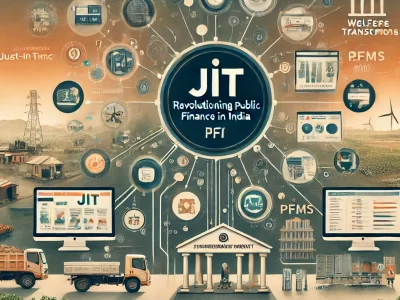Guarding the Digital Nation: Power, Politics & Protection in the Digital Age

In today’s digital-first world, data is not merely a byproduct of internet usage—it is a strategic asset, a tool of governance, a political instrument, and a matter of national security. With more than 1.4 billion citizens generating data across health, finance, mobility, and identity platforms, India’s digital footprint is massive and growing. As a result, the question of who owns and governs this data has emerged as one of the most pressing political debates of our time.
This is India’s battle for data sovereignty—a multipronged effort to assert political, economic, and technological control over the data of Indian citizens and institutions.
Understanding Data Sovereignty
Data sovereignty refers to the idea that data is subject to the laws and governance of the country in which it is generated. For India, this implies that data created within its borders—whether by individuals, companies, or government bodies—must be governed by Indian laws and, preferably, stored and processed within the country.
But beyond the technicalities, data sovereignty is sovereign political will—the ability of a government to protect citizen rights, ensure strategic independence, and prevent digital colonialism by foreign corporations.
The Political Imperative Behind Data Sovereignty
 Democracy in the Age of Data
Democracy in the Age of Data
As digital platforms increasingly mediate elections, political narratives, and voter engagement, control over data becomes essential for protecting electoral integrity and democratic institutions.
- Political campaigns now rely on data-driven microtargeting, making them vulnerable to foreign influence and manipulation if voter data is stored offshore or accessed by global platforms.
- The 2024 Lok Sabha Elections saw AI-generated deepfakes and misinformation rise exponentially, underlining the urgent need for domestic oversight over digital infrastructure.
Data sovereignty is, therefore, a democratic safeguard—ensuring Indian elections remain Indian-controlled.
 Strengthening Federal Governance
Strengthening Federal Governance
India’s vast federal system relies on accurate, real-time data for policy design and delivery.
- Schemes like PM-KISAN, Ayushman Bharat, and Jal Jeevan Mission use granular household-level data to identify beneficiaries.
- Without sovereign control over this data, central and state governments risk dependence on third-party infrastructure that could delay delivery, compromise privacy, or skew insights.
By localizing data and building public digital infrastructure (like DigiLocker, CoWIN, ONDC, UPI), the government enhances its executive capacity and reduces the influence of private monopolies in governance.
 The State as Data Steward—not just Surveillance Agent
The State as Data Steward—not just Surveillance Agent
While the Digital Personal Data Protection Act, 2023 gives the government power to protect user data, it also exempts state agencies from compliance in the name of “national interest.”
This raises critical political questions:
- Who decides what “national interest” means?
- Can surveillance be checked if the regulator and the violator are the same?
- How do we ensure civil liberties and individual privacy in a digitally empowered state?
To make data sovereignty meaningful, India must strengthen institutional safeguards—like parliamentary oversight of surveillance, independent data regulators, and public consultation in digital lawmaking.
Geopolitics of Data: Asserting India’s Voice Globally
India is also asserting its leadership on the global stage by positioning data as a sovereign resource, similar to oil or natural gas in earlier eras.
- At the G20 Summit (2023), India led the conversation on Digital Public Infrastructure (DPI) as a global public good.
- By offering the India Stack (Aadhaar, UPI, DigiLocker, etc.) to Global South nations, India is exporting its data sovereignty model to counter Western Big Tech dominance and China’s authoritarian model.
This is a new form of digital diplomacy—where India builds soft power through ethical, open-source digital systems.
Challenges to Political Implementation
Despite momentum, challenges remain:
- Conflict between regulation and innovation: Over-localization could discourage foreign investment in India’s growing tech ecosystem.
- Capacity Gaps: Local governments often lack the infrastructure to enforce compliance or manage citizen data responsibly.
- Political Will vs Political Convenience: There is often a gap between rhetoric of sovereignty and ground-level practices like excessive surveillance, data leaks, and opaque contracting of digital platforms.
Way Forward: A Democratic Data Doctrine
To truly win the battle for data sovereignty, India must evolve a balanced data doctrine—one that promotes innovation and security without compromising democratic values.
Conclusion: Sovereignty is Not Just Security—it’s Accountability
In an era where algorithms influence elections, cloud servers house national infrastructure, and tech platforms mediate citizen rights, data sovereignty is no longer a technical issue—it is a core political and governance question.
India’s data sovereignty battle is not just about resisting Big Tech or regulating foreign platforms. It is about reclaiming democratic control, protecting citizens, and ensuring that digital power flows through constitutional values—not corporate algorithms.
In this battle, the real victory lies in creating a digital state that is not only strong—but also just, transparent, and accountable to its people.








